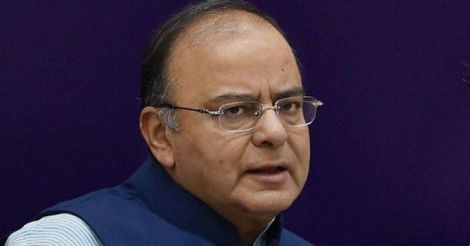Arun Jaitley is sure that his budget presented in less than 100 days will unleash the second generation economic reforms, transforming India. The finance minister wants to change major law as on land, natural resources, environment and finance, which will change the way the business is done in the country and jobs are generated. Riding on the majority victory of Narendra Modi in Lok Sabha elections, Jaitley wants to make sweeping changes and partly dismantle the welfare state built by UPA government in the last decade.
Second generation changes have been the dream of every finance minister starting from Manmohan Singh in 1990s. After Prime Minister P.V. Narasimha Rao and Singh brought the first wave of reforms in 1991, there has been a push for bolder reforms which will make Indian economy globalised and reduce the control levels of the Central and State governments. But the dream was elusive for Singh and his five successors in North Block which houses the finance ministry. Chidambaram was Finance Minister both in United Front and UPA governments, Jaswant Singh and Yashwant Sinha worked under Atal Behari Vajpayee, Pranab Mukherjee for four years in UPA, and now Jaitley under Modi.
But none of Jaitley's predecessors could find political consensus for adopting a Laissez-faire government where the state will have limited control and the public sector is abolished. Manmohan Singh and Rao faced strong resistance within the Congress party as dissident Arjun Singh demanded "reforms with a human face". The United Front and the first UPA government depended on the support of Left parties which opposed legislative changes. Arjun Singh had convinced Sonia Gandhi about the dangers of big reforms and she fought the 2004 elections on the Aam Aadmi slogan and she pushed hard for legislation to protect tribals and agriculturists and expanded state subsidies.
Vajpayee whose economic philosophy was opposed to the socialist politics of Congress also couldn't take up second generation reforms because of strong opposition from his Sangh Parivaar. The Swadeshi Jagran Manch, an affiliate of RSS, opposed globalisation and his coalition partners were lukewarm. The rise of NGOs opposed to industries and an activist judiciary has made the reforms a complicated matter.
That is why essential features of these reforms like allowing 100 per cent foreign investment in insurance, banking, defence and railways were stuck for over 20 years. In the meanwhile mega scams in allocation of resources like coal, telecom spectrum, land and aviation slots has resulted in tightening of the legal structures, especially in land acquisition.
But Jaitley is confident that he has the full backing of the prime minister and party president, which earlier finance ministers did not have. He feels he can manage the opposition in Rajya Sabha where BJP doesn't have a majority. But still he has to ensure RSS is on board to prevent any internal sabotage. His hands are full.
Tailpiece: Lok Sabha speaker Sumitra Mahajan has completed allotment of seats in the chamber to all parties, now she has the more complicated task of reallocating rooms to different parties based on their strength in parliament.











































































































































































































































 Finance Minister Arun Jaitley (file photo)
Finance Minister Arun Jaitley (file photo)
Disclaimer
The comments posted here/below/in the given space are not on behalf of Manorama. The person posting the comment will be in sole ownership of its responsibility. According to the central government's IT rules, obscene or offensive statement made against a person, religion, community or nation is a punishable offense, and legal action would be taken against people who indulge in such activities.